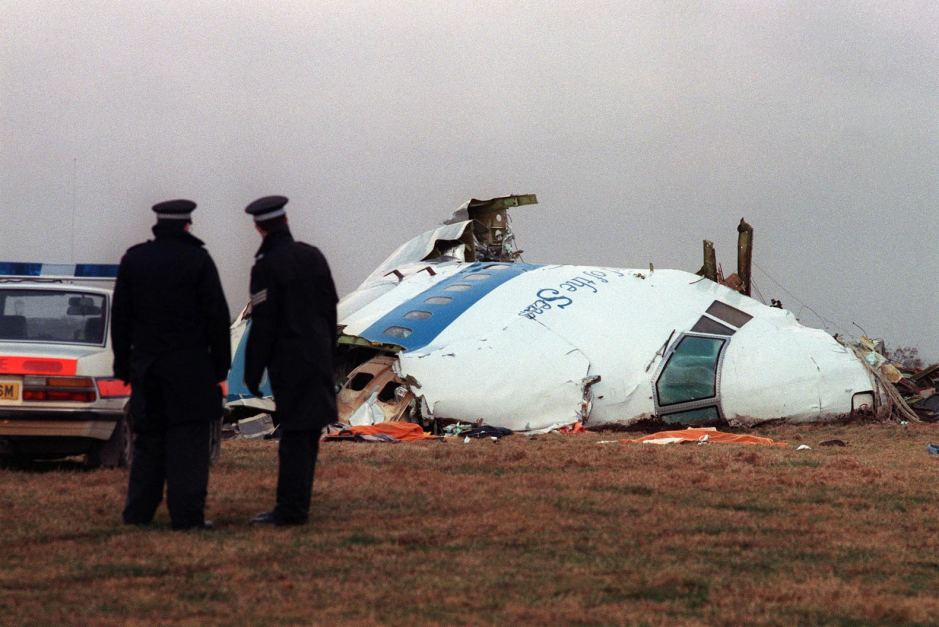Still No Justice for Lockerbie

In 1988, Libyan terrorists, sponsored by the intelligence services of the now-deceased Muammar Qaddafi, made a bomb using a plastic explosive planted within a Toshiba cassette player with the cruelly-ironic name “Bombeat.” Twenty-three years ago today, Libyan operative Abdelbaset al Megrahi planted the device aboard Pan Am flight 103, the final leg of which was to deliver 259 souls from Heathrow to JFK airport.
As the aircraft flew 31,000 feet above Lockerbie, Scotland, the IED detonated, killing all onboard and sending the Maid of the Seas and its occupants crashing to the ground in the quiet, sparsely populated village. Eleven more innocents in Lockerbie were killed by the falling debris. porno video filmleri ile kendinizden gecin ve 31 cekin bol bol merak etmeyin bi?eycik olmaz am?na koyim.
It took hundreds of local volunteers to scour the formerly pristine earth of Lockerbie in search of debris from the catastrophe, and hundreds more FBI agents and Scottish police to conduct a world-wide investigation into the mass murder of these innocent civilians, many of whom were American college students headed home for the holidays from studies abroad. Thanks to the tiresome work of those investigators, Libya was held responsible for the attack and Megrahi was convicted in early 2001 of 270 counts of murder by a special panel in the Netherlands consisting of three Scottish judges. He was sentenced to life in prison, and the Libyan government paid compensation to a fund set up for the victims’ relatives.
Just over seven months after Megrahi was convicted, US civil aviation was attacked again by militant Islamists who hijacked four aircraft to kill nearly 3,000 civilians and cause unprecedented damage on lower Manhattan, at the Pentagon, and in the small town of Shanksville, Pennsylvania—a place not dissimilar in its quaintness from Lockerbie.
Then, on December 22, 2001, just a day after the 13th anniversary of the Lockerbie bombing, Richard Reid, an al-Qaeda operative, attempted to detonate a bomb secreted in his hiking boots aboard an American Airlines flight destined for Miami. Thanks to the bravery of the crew and passengers, likely inspired by the heroism of the passengers aboard United Airlines flight 93, Reid’s attempt was foiled.
The enormity of the 9/11 attacks and the specter of al-Qaeda virtually wiped from our memories the horrors of the Pan Am 103 disaster. Osama bin Laden and his fanatical brethren set a new standard for evil on that day, making the Libyans look like small-time outlaws in comparison. Qaddafi himself was so shaken by the U.S.-led response to the al-Qaeda attacks that he announced his willingness to dismantle his weapons of mass destruction program, despite having received $3.5 billion from Saddam Hussein in 2002 to ward off an American challenges to his power.
Qaddafi’s apparent about-face seemed to be just the sort of ebb to state-sponsored terrorism that President George W. Bush hoped to inspire. And despite an enormous amount of vitriolic criticism against his “War on Terror,” President Bush forged ahead, convinced that taking the fight to the terrorists was essential to securing Americans at home and abroad. More than 10 years after 9/11, there have been no successful terrorist attacks on American civilians, the longest such period of security in the modern age of terrorism—this despite the fact that every single terrorism expert who testified before the 9/11 Commission stated with certainty that the United States would be struck again. It’s difficult to argue with such results.
Unfortunately, though, the latest chapter on terrorism against U.S. civil aviation doesn’t close there. In August of 2009, Abdelbaset al Megrahi, the only man convicted for his role in the Pan Am 103 murders, was released on grounds of “compassion” by the Scottish Government. Megrahi, it seems, was found to be suffering from terminal prostate cancer and had only weeks to live. The Cabinet Secretary for Justice, Kenny MacAskill, decided that the terrorist should be allowed to return to Libya to live out his dying days. Megrahi, a convicted mass murderer, returned to Tripoli where he was greeted with a hero’s welcome, while again the families of the victims were forced to endure unimaginable heartache. In one fell swoop, Secretary MacAskill made a mockery of the concept of life imprisonment and the grief of the Pan Am 103 families.
That was more than two years ago. Since then, Osama bin Laden has been killed and the architect of 9/11, Khalid Sheikh Mohammed, still sits in federal custody awaiting what one hopes is a conviction and death sentence. But, ironically, 23 years after his crime, Megrahi is still alive, living comfortably at home, even surviving the upheaval that led—with American support—to the overthrow of their dictator. And though Secretary of State Hillary Clinton has called for Megrahi to be returned to prison, still he rests at home surrounded by his friends and family, who will surely be with him when he finally meets his long overdue demise.
Clearly, it is time for some measure of true justice and respect for the families who lost loved ones on December 21, 1988. President Obama should make a demand to Libya’s National Transitional Council for the immediate extradition of Megrahi to the United States. The families should no longer have to endure the insult of knowing Megrahi is a free man at home with his relatives while they endure their twenty-third holiday season without their own.

